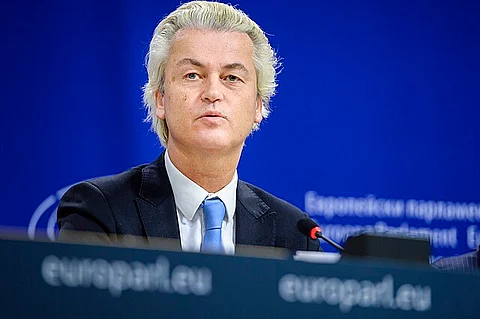

Dutch politics was thrown into turmoil on Tuesday after Geert Wilders’ far-right Party for Freedom (PVV) abruptly pulled out of the governing coalition, a move widely expected to bring down the country’s right-wing government and trigger snap elections.
The PVV’s exit comes amid growing far-right momentum across Europe, driven by public frustration over immigration, rising living costs, and economic instability.
Analysts say a potential Dutch election would be closely watched as a bellwether for the broader European political climate, particularly regarding unity in confronting Russia’s war in Ukraine. The outcome could also signal shifting attitudes toward transatlantic alliances and offer a glimpse into the resurgence of support for figures like former U.S. President Donald Trump.
Opposition parties in the Netherlands reacted with shock and disbelief following the collapse of the ruling coalition, accusing Geert Wilders' far-right PVV of destabilizing the country at a critical time. Several opposition leaders condemned the move as an irresponsible power play, with some characterizing it as an attempt to undermine European unity from within.
They warned that the decision effectively renders the Dutch government dysfunctional and weakens the country’s ability to contribute meaningfully to collective European efforts, particularly in the face of geopolitical threats such as Russia’s aggression in Ukraine.
There is a war on our continent. Instead of meeting the challenge, Wilders is showing he is not willing to take responsibility,
Dilan Yesilgoz. leader of the VVD party